Reviews
Peter Watkins
UK, 1965
Credits
Review by Glenn Heath Jr.
Posted on 05 August 2013
Source Project X / New Yorker DVD
Related articles
Reviews: The War Game (by Leo)
Categories Favorites: The Apocalypse
Nuclear armageddon has long been the subject of apocalypse narratives ever since the United States and U.S.S.R. brought the world to the brink of extinction during the Cold War. The sense of societal unease, from the 1950s to 1980s, was so strong it permeated an area of media, including literature and theatre. It’s been the cinema, however, that has provided some of the most haunting realizations of our nuclear demise, using the power of sound and image to convey mass tragedy in many darkly creative ways.
As with any genre, the apocalypse film is mostly dictated by tone. Sometimes it’s satirical (Dr. Strangelove), sometimes aggressively cynical (BBC’s Threads). What makes Peter Watkins’ The War Game so special is that it combines both a whip-smart, “what-if?” scenario ripe with facts and graphs with a horrific visual depiction of societal breakdown and nuclear fallout. Constructed in the vein of a cautionary instructional video, The War Game depicts what would happen if Russian thermo-nuclear bombs attacked Britain in the early 1960s, focusing on everything from evacuation protocols to post-apocalyptic infrastructures.
Before the mutually assured destruction there was information. The War Game introduces the tense social and political climate produced during the post-WWII period, describing the logistical military strategies of multiple countries linked by ideological ties. We get statistics and models and charts, all suggesting a tipping point where any one false move will send the world into a nuclear nightmare of biblical proportions. This is Eisenhower’s “Domino Theory” in action, but not from a theoretical perspective; Watkins sets out to explore how individual countries experience moral and institutional apocalypses in real time.
Despite its 48-minute duration, The War Game feels epic in scope and intent. Watkins moves swiftly through the various stages of duress, from the impact of multiple thermo-nuclear warheads in and around Kent to the increasingly volatile aftermath that sends surviving citizens into whirlpool of despair and deceit. Every stage of our demise gets explored from various angles. Watching things fall apart so quickly and seamlessly reveals how unprepared society is when faced with an apocalyptic event. But Watkins isn’t just interested in examining the procedural failures; he’s equally fascinated by the disintegration of emotion on a collective level.
Shot on 16mm in a jerky, hand-held aesthetic, the film produces images of agonizing immediacy, often filming in close-up during action sequences so as to only hint at the mass carnage occurring off-screen. The most distressing sequence comes immediately after detonation, when local firefighters helplessly attempt to corral a raging inferno similar to those found in Dresden and Tokyo after the Allied bombed those cities relentlessly during WWII. While the firestorm itself engulfs the frame, the droll narrator’s voice defines in scientific terms what exactly those people are experiencing right down to the moment all of the air is sucked out of their lungs by the intense blaze.
War is messy, and Watkins goes to great lengths to portray just how brutally careless and muddled it can be. There’s mention of warheads missing their targets, exploding in highly populated areas. The police turn corrupt, holding the remaining supplies for themselves. This causes civilian insurgent groups to spawn and fight for the right to suffer. The film’s distressing final montage of dirt-faced little boys numbed by their newfound wasteland puts an exclamation point on this motif of grimy societal breakdown. No one is immune to its effects.
Unlike most disaster films, The War Game recognizes its artificiality. Multiple times the narrator says, “This is nuclear war,” ending specific chapters with a call to arms of sorts. But that doesn’t make its images, sounds, and scenarios any less potent. If anything, it adds a layer of dimension to each moment that can’t be found in character-driven films. The War Game is not a documentary, but it could be, and this is its most frightening aspect. Here, we have the apocalypse staring us in the face, warning us with its potential to craft a hell on Earth. “Would the survivors envy the dead?” the narrator asks in the closing moments. Hopefully, we’ll never have to find out.
More Favorites: The Apocalypse
-
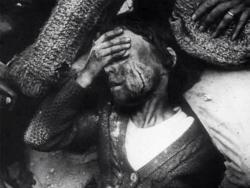
The War Game
1965 -
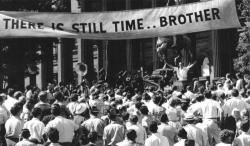
On The Beach
1959 -
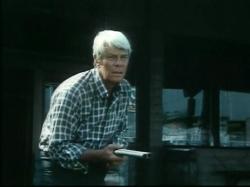
Where Have All the People Gone
1974 -

A Boy and His Dog
1975 -
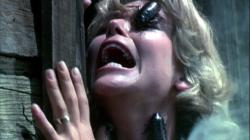
Bug
1975 -
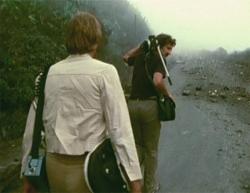
La Soufrière
1977 -

Escape from New York
1981 -
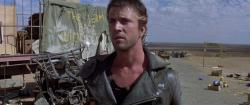
The Road Warrior
1981 -

Le Dernier Combat
1983 -

Night of the Comet
1984 -

Threads
1984 -

The Terminator
1984 -

Def-Con 4
1984 -
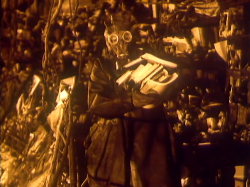
Letters From a Dead Man
1986 -
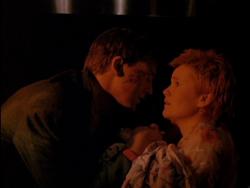
Miracle Mile
1988 -

Last Night
1988 -

Last Days
2005 -

The Rapture
1991 -

Southland Tales
2006 -
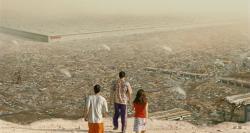
Idiocracy
2006 -

The Happening
2008 -
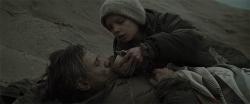
The Road
2009 -

Cosmopolis
2012
We don’t do comments anymore, but you may contact us here or find us on Twitter or Facebook.



